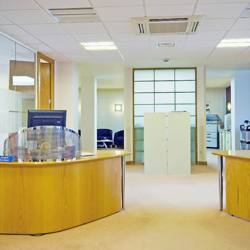Taking energy efficiency seriously

Not only is modern air conditioning equipment far more efficient than equipment that is 10 years old, but much of it qualifies for Enhanced Capital Allowances.
Installers, specifiers and manufacturers in the building services industry must do more to educate their end-user customers on the benefits of installing energy efficient and cost effective equipment in their premises, according to Daikin Airconditioning UK Ltd. This statement follows the publishing of a national survey commissioned by the company into the importance of energy efficiency.* Carried out with facilities managers in the retail, health, leisure and hospitality industries, the research has revealed a serious lack of knowledge about the Government’s Enhanced Capital Allowance (ECA) scheme and the potential savings end-users can make for their business. The survey reports that 67% of facilities managers did not know what the ECA scheme is and were unaware they could claim Enhanced Capital Allowances for new or replacement energy-efficient air-conditioning systems. A staggering 74% also did not know the potential cost savings they could make for their business under the scheme. Mark Dyer, marketing manager at Daikin UK, says, ‘Rising energy costs coupled with Government legislation introduced to reduce carbon emissions has placed greater demand on businesses to be more energy efficient. It is therefore vitally important that as an industry we take our commitment to energy efficiency seriously by continuing to raise awareness of the business benefits of installing the right equipment. ‘However, the survey results highlight that more still needs to be done. It is our responsibility as a leading manufacturer, to address this and make sure it happens. By doing so, not only will it increase the awareness of energy efficiency and the ECA scheme amongst end-users, but it will also further highlight that as an industry we are competent and confident that the products and services we are offering will offer maximum return for our customer’s businesses.’ The ECA scheme provides financial incentives to encourage companies to choose energy-efficient equipment, entitling any business making a capital investment in listed low-carbon technologies to offset the cost against income or corporation tax by claiming Enhanced Capital Allowances. This means they can claim 100% first year tax relief on qualifying equipment and also the cost of installing that equipment. The survey also revealed that although just under two thirds (65%) of premises have air-conditioning systems installed, nearly half (44%) of facilities managers did not know the energy-efficiency benefits of new air conditioning compared to equipment that is 10 years old. However, the good news is that over three quarters (76%) of facilities managers do know that an air-conditioning system can effectively heat their building in the winter as well as cooling it in the summer to provide year-round climate control, with 73% of those surveyed stating that their internal environment is generally the right temperature during the winter months. Over 80% also understand the implications that an environment that is too hot or too cold has on the productivity of their staff and the comfort of their customers. Mark Dyer continues, ‘Understanding the business benefits of air-conditioning systems is essential as there is still a common myth that it can only cool. The fact is, air conditioning is no longer a luxury item and has become a vital component in new-build and refurbishment projects. Through the benefits of heat-pump technology, air conditioning systems are up to five times more energy efficient than traditional heating — offering businesses increased cost savings on their energy bills.’ The survey also researched a number of other measures to establish how seriously facilities managers take energy efficiency. Encouragingly, 86% of facilities managers do undertake measures to actively reduce their fuel bills. This includes educating staff to turn off any non-essential electrical equipment, encouraging staff to turn off their computers at night, replacing light bulbs with energy-efficient ones and improving building-management systems. However, when asked about an environmental policy, over a quarter (27%) of those surveyed stated that their company did not have one. Mark Dyer concludes, ‘Energy efficiency has become a buzz word, and the more businesses can do to take their responsibility seriously will ultimately put them in a better position, both in terms of combating rising fuel prices to reduce energy bills and to help the environment.’
*This national survey was carried out with the emedia Research Network (ERN), a pioneer in business to business email bulletins that canvasses opinion on the latest business issues from a group of the UK’s leading business executives. The research formed part of emedia’s Facilities Managers Bulletin, which goes out to 10 000 facilities managers in the UK.
Related links:


